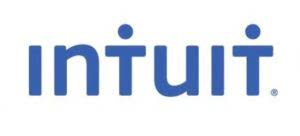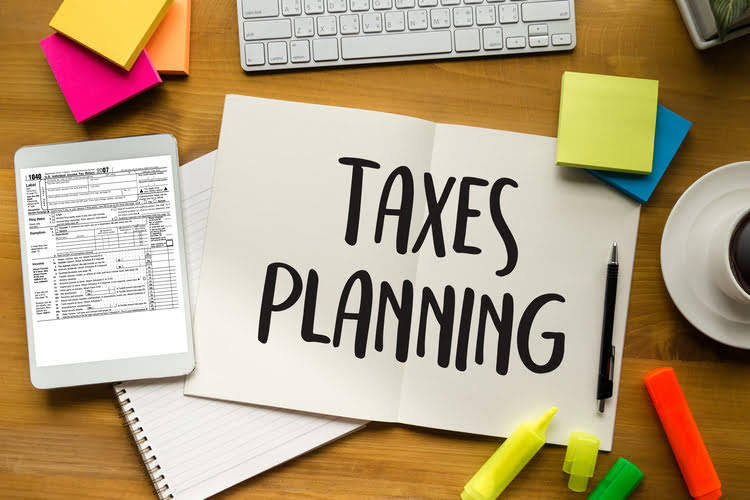Blog ›
ACCOUNTANCY Definition & Meaning

This is the practice of recording and reporting financial transactions and cash flows. This type of accounting is particularly needed to generate financial reports for the sake of external individuals and government agencies. These financial statements report the performance and financial health of a business. For example, the balance sheet reports assets and liabilities while the income statement reports revenues and expenses. Financial accounting is governed by accounting rules and regulations such as U.S.
Advantages of Accounting
Accounting information exposes your company’s financial performance; it tells whether you’re making a profit or just running into losses at the end of the day. Using one of the examples above, it double declining balance depreciation method is not enough to record that the company paid salaries for April. It must include monetary figures – say for example, $20,000 salaries expense. Accounting is a back-office function where employees may not directly interface with customers, product developers, or manufacturing. However, accounting plays a key role in the strategic planning, growth, and compliance requirements of a company.
- A simple definition of accounting is the activity of keeping records of the money a person or organization earns and spends.
- This can be a complex process, but it is essential to ensure that employees are paid accurately and on time.
- Similarly, a cash flow statement revealing liquidity issues could lead to adjustments in credit terms or a focus on accelerating collections.
- It’s also worth noting that while all CPAs are accountants, not all accountants are CPAs.
- Cost accounting provides the tools to assign costs, identify wasteful spending, and increase profits.
- As a result, all professional accounting designations are the culmination of years of study and rigorous examinations combined with a minimum number of years of practical accounting experience.
Use generally accepted accounting principles
They perform various business functions such as the preparation of financial reports, payroll and cash management. Accountancy refers to the profession which involves the regulation of activities performed by accountants, overseen by accountancy bodies. The scope of accountancy covers a broad array of practices including bookkeeping, financial reporting, tax preparation, and auditing services. It is instrumental in ensuring the accuracy, transparency, and efficiency of an entity’s financial operations and its adherence to regulatory standards.
What Is an Accountancy Degree? A 2025 Guide to Accounting Degrees
Accountants work with companies, governments, and non-profits, or set up private practices. Accounting is popularly regarded as “the language of business” because it doesn’t just help you keep track of your money, but also helps you make informed decisions about your business. To speed up action, you may hire accounting professionals or purchase accounting software to ensure accurate financial audits and reporting. This focuses on the use and interpretation of financial information to make sound business decisions. It’s similar to financial accounting, but this time, it’s reserved for internal use, and financial statements are made more frequently to evaluate and interpret financial performance. Accountancy is the regulated profession encompassing various aspects of financial management, while accounting refers more specifically to the process of recording, summarizing, and reporting financial transactions.
What are the objectives of financial accounting?
Ultimately, every business needs accounting — it’s how companies understand their financial footing and future growth (or decline). Sometimes, accounting is called “financial reporting” because accounting in businesses often focuses on the analysis and communication of a business’ financial information. Accountancy focuses on the principles for gathering and using financial data. It gives accounting a framework and practices that accountants can use to identify, collect, record and report financial information. Other related professions, such as bookkeeping, also fall under the broad umbrella of accountancy.

Accounts Payable Interview Questions and Answers in 2025

In conclusion, accounting is a vital function in any business, providing accurate financial information that can be used for decision-making purposes. Understanding the basics of accounting and its history can help business owners make informed decisions and ensure their financial statements are consistent and transparent. While bookkeeping focuses on the methodical recording of financial transactions, Accounting goes beyond to interpret, analyse, and summarise these records.
Make informed decisions with inside details about our business programs, the skills you’ll earn, the faculty who’ll teach you and more. Students with eligible credits and relevant experience on average saved $11k and 1 year off their accountancy undergraduate degree with University of Phoenix. The workload is manageable for working adults who want to enhance their careers, but don’t have the time to attend classes in person.” I love being a Phoenix – I feel that everything that I have learned has either enhanced my life or my career, and it is well worth the time and expense.”
- Accounting tasks are completed in a specific order, and this process is defined as the accounting cycle.
- Additionally, much accounting work is performed by uncertified individuals, who may be working under the supervision of a certified accountant.
- Also called managerial accounting, this type of accounting involves preparing detailed reports and forecasts for managers inside the company, which is a big part of what differentiates it from financial accounting.
- Financial accounting, management accounting, cost accounting, and tax accounting are some of the most common types of accounting.
- Specialises in preparing and filing tax returns while ensuring compliance with tax laws and identifying tax-saving opportunities.
Helpful in Assessing the Tax Liability

Advanced accounting practices, such as cost accounting and managerial accounting, provide insights that go beyond compliance and reporting. For example, cloud-based accounting systems allow real-time access to financial data, facilitating collaboration among team members Accounting Periods and Methods across different locations. Automation also ensures that complex calculations, such as depreciation schedules or tax provisions, are handled accurately and consistently.

Accounting software allows you to do basic tasks such as tracking inventory, invoicing and payments, and generating reports on sales and expenses. It’s useful for small businesses and freelancers who don’t have the resources to hire an accountant or bookkeeper. Besides, this frees up time so you can focus on running your business smoothly.
Accounting Principles: Types, GAAP and IFRS Explained
Earn your Master of Accounting from the Gies College of Business at the University of Illinois, one of the top three accounting programs in the United States. Experience for yourself what it’s like to earn your degree online by taking an open degree course, like US Federal Taxation or Financial Reporting. If you’re admitted to the full program, your courses count toward your degree. In this article, you’ll learn more about accountancy degrees, different types of them, and the jobs you can land as a degree holder. All recognized national and provincial accounting bodies in Canada have now unified under the CPA banner. The Canadian CPA designation is held by more than 200,000 members in Canada and around the world.
Categorías
Archivos
- febrero 2026
- enero 2026
- diciembre 2025
- noviembre 2025
- octubre 2025
- septiembre 2025
- agosto 2025
- julio 2025
- junio 2025
- mayo 2025
- abril 2025
- marzo 2025
- febrero 2025
- enero 2025
- diciembre 2024
- noviembre 2024
- octubre 2024
- septiembre 2024
- agosto 2024
- julio 2024
- junio 2024
- mayo 2024
- abril 2024
- marzo 2024
- febrero 2024
- enero 2024
- diciembre 2023
- noviembre 2023
- octubre 2023
- septiembre 2023
- agosto 2023
- julio 2023
- junio 2023
- mayo 2023
- abril 2023
- marzo 2023
- febrero 2023
- enero 2023
- diciembre 2022
- noviembre 2022
- octubre 2022
- septiembre 2022
- agosto 2022
- julio 2022
- junio 2022
- mayo 2022
- abril 2022
- marzo 2022
- febrero 2022
- enero 2022
- diciembre 2021
- noviembre 2021
- octubre 2021
- septiembre 2021
- agosto 2021
- julio 2021
- junio 2021
- mayo 2021
- abril 2021
- marzo 2021
- febrero 2021
- enero 2021
- diciembre 2020
- noviembre 2020
- octubre 2020
- septiembre 2020
- agosto 2020
- julio 2020
- junio 2020
- mayo 2020
- abril 2020
- marzo 2020
- febrero 2020
- enero 2019
- abril 2018
- septiembre 2017
- noviembre 2016
- agosto 2016
- abril 2016
- marzo 2016
- febrero 2016
- diciembre 2015
- noviembre 2015
- octubre 2015
- agosto 2015
- julio 2015
- junio 2015
- mayo 2015
- abril 2015
- marzo 2015
- febrero 2015
- enero 2015
- diciembre 2014
- noviembre 2014
- octubre 2014
- septiembre 2014
- agosto 2014
- julio 2014
- abril 2014
- marzo 2014
- febrero 2014
- febrero 2013
- enero 1970
Para aportes y sugerencias por favor escribir a blog@beot.cl